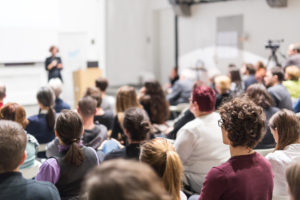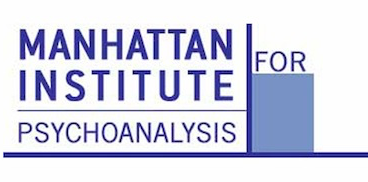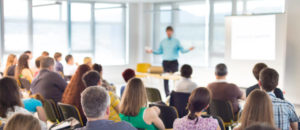Podcasts
AN ONLINE CONFERENCE SPONSORED BY
THE MANHATTAN INSTITUTE FOR PSYCHOANALYSIS
AND
THE SÁNDOR FERENCZI CENTER AT THE NEW SCHOOL FOR SOCIAL RESEARCH
We are besieged daily by images of fire, flood, and drought, by news of massive species extinctions and destruction of ecosystems, and by terrifying stories of displacement and loss. In our clinical work, we share this traumatic context with our patients and are profoundly affected, whether consciously or without awareness. Historically, psychoanalysis has struggled to integrate the social, the political and the clinical into our theory and practice. We have too often retreated in the face of massive social problems. We cannot let this happen in response to this existential crisis. This conference brings together clinicians and psychoanalysts who are actively engaged with the climate emergency, as well as a youth climate activist who represents the essential perspective of the next generation. We present this conference in order to explore the crucial role that psychoanalysis can play in confronting the climate crisis and to encourage our community to oppose the embedded social and political challenges of environmental injustice. Our goal is to initiate a conversation that will inspire thinking, feeling and action.
In order to receive a Certificate of Completion form for attending this conference, please click on the Learning Objectives Evaluation form link above. You must have attended all of both days of the conference to attain this Certificate of Completion.
Manhattan Institute for Psychoanalysis is recognized by the New York State Education Department’s State Board for Social Work as an approved provider of continuing education for licensed LCSW, LMSW, LCAT and LMHCs.
Session I: Saturday, December 5, 2020: 1pm to 4:30pm EST (10:00AM-1:30PM PST)
Lise Van Susteren, MD
Framing the Climate Crisis Psychologically
Robert Jay Lifton, MD
Climate Change and Witnessing Professionals
Renee Lertzman, PhD
Beyond Anxiety and Ambivalence: An Overview of Psychoanalytic Contributions to our Climate Crisis
Daniel Gaztambide, PsyD
Afropessimism, Climate Change, and “The End”: Puerto Rican Reflections on anti-Blackness and Ecological Crisis
Session II: Saturday, December 12, 2020: 1pm to 4:30pm EST (10:00-1:30 PST)
Robert Stolorow, PhD
Planet Earth: Crumbling Metaphysical Illusion
Clinical Panel:
Wendy Greenspun, PhD
Frozen in Trauma on a Warming Planet: A Relational Reckoning with Climate Distress
Elizabeth Allured, PsyD
The Illusion of a Future: Adolescents Face Smoke and Mirrors with a Good Enough and Bad Enough Eco-Analyst
Katie Gentile, PhD
Kittens and the Climate in the Clinical Space: Rethinking Subjectivity as a Transcorporeal Experience
Vic Barrett, Youth Climate Activist
A Youth Climate Activist’s Journey with the Climate Crisis and the Environmental Justice Movement
$175 The Manhattan Institute for Psychoanalysis is a NY State approved provider of continuing education hours for: LCSW, LMSW, LCAT and LMHC. Attendance for both days will provide 7 CEs.
Manhattan Institute for Psychoanalysis is recognized by the New York State Education Department’s State Board for Social Work as an approved provider of continuing education for licensed LCSW, LMSW, LCAT and LMHCs.
Please be advised that partial CE’s can not be given according to the NY State Office of the Professions.
$150.00 for students and analytic candidates, with proof of enrollment.
See below for presentation descriptions. Click here for conference schedule.
DECEMBER 5, 2020
Lise Van Susteren-
Framing the Climate Crisis Psychologically
Abstract: Understanding the psychological impacts of climate disruption requires that we awaken sometimes ill-defined aspects of ourselves; the presentation will include a brief survey designed to do unearth these. An overview of the climate crisis and its cascading impacts will be described, and the physical and emotional toll as we try to deal with this (a two-way street) will be reviewed. Not everything that counts can be counted: the inchoate, insidious, and complex harms from climate degradation will be unpacked, along with the answers to questions about how smart people can disavow what is right in front of them. As despairing, angry or frightened as we may be, opportunities to capture the energy embedded in these strong emotions – and redirect them into meaningful action – lie ahead; and fill us with hope and resilience as we delve into the messaging and healing effects of collective action.
Bio: Lise Van Susteren, M.D, a general and forensic psychiatrist in Washington, DC, is an expert on the physical and mental health effects of climate change. In 2011 she co-authored “The Psychological Effects of Global Warming on the U.S. – Why the US Mental Health System Is Not Prepared”. In addition to community organizing on climate issues, Van Susteren serves on several boards including the Climate Psychology Alliance. She is a frequent contributor on television, radio and in the print media. In 2006 Dr. Van Susteren sought the Democratic nomination for the US Senate from Maryland. Her book, “Emotional Inflammation” was released in April 2020.
Robert Jay Lifton, MD
Climate Change and Witnessing Professionals
Summary:
I came to view my work in Hiroshima, and subsequently that on climate change, as combining scientific research with a form of witness. This led to the concept of the witnessing professional as one who calls forth professional knowledge and experience to reveal and combat forms of malignant normality to which our society is exposed. In this paper I examine experiences, of others, as well as my own, of the witnessing professional in both nuclear threat and climate change. It turns out that witnessing professionals are crucial for confronting these two interrelated apocalyptic threats to the human future.
Bio:
Robert Jay Lifton is an American psychiatrist and author. His books include Death in Life: Survivors of Hiroshima (winner of a National Book Award), The Nazi Doctors: Medical Killing and the Psychology of Genocide (winner of a Los Angeles Times Book Prize), and more recently The Climate Swerve: Reflections on Mind, Hope, and Survival, and Losing Reality: On Cults, Cultism, and the Mindset of Political and Religious Zealotry. He is Lecturer in Psychiatry at Columbia University and Distinguished Professor Emeritus at CUNY.
Renee Lertzman, PhD
Beyond Anxiety and Ambivalence: An Overview of Psychoanalytic Contributions to our Climate Crisis
Abstract: Is psychoanalytic work relevant for how we address our global climate and environmental crises? The answer is a resounding yes. However, this intersection of psychoanalytic thought and climate crises is not straight forward. How can we best apply and translate clinical insights and practices, into applied and tangible practices? In this paper, I present an overview of the evolution of psychoanalytic thinking as it’s been engaged with our ecological and climate crises— from Searles to contemporary pioneers–and highlight where I see the most salient and critical points of intersection. Drawing on examples from a project funded by the KR Foundation, I share the process of translating psychoanalytic concepts into tools, resources and practices that help educators, activists and organizations scale and accelerate their work.
Bio: Renée Lertzman, Ph.D. is a researcher, educator and eco-engagement strategist who uses psychological insights to change our approach to the environmental crisis. Applying her training as a psychosocial researcher specializing in deep human insights, she uses frameworks and methods that empower people to take action and create impact on climate and sustainability issues. She works with companies and organizations looking to strengthen climate and sustainability initiatives, develop more effective campaigns, and harness the creativity and innovation needed to solve big problems. Her book, Environmental Melancholia: Psychoanalytic Dimensions of Engagement (Routledge, 2015), presents a psychoanalytic account of what impedes action on climate and sustainability.
Daniel José Gaztambide, PsyD
Afropessimism, Climate Change, and “The End”: Puerto Rican Reflections on anti-Blackness and Ecological Crisis
Abstract:
The struggle against anti-Blackness is seen on a different register from the struggle against capitalism and ecological collapse. In actuality, anti-Blackness as a political ideology facilitates the installation of White nationalist and capitalist interests as public policy, including the corrosion of ecological protections, accelerating climate change. These policies “trickle down” in ways that exacerbate racism and wealth inequality while bringing us closer to “The End.” Drawing on psychoanalytic theories of race and class, alongside Afropessimism’s psychoanalytically-inflected phenomenology of anti-Blackness, a Puerto Rican psychoanalytic psychologist will describe his clinical work with Puerto Ricans displaced by Hurricane Maria, revealing the internalized colonialism of racial and capitalist discourse in the context of ecological crisis. The talk will conclude by meditating on possible practices of decolonial cross-racial ecojustice.
Bio: Daniel José Gaztambide, PsyD, is assistant professor of clinical practice and assistant director of clinical training in the department of clinical psychology at the New School for Social Research, where he is also the director of the Frantz Fanon Center for Intersectional Psychology. Originally from Puerto Rico, he is a practitioner in private practice in New York and an analytic candidate at the NYU-Post Doctoral Program in Psychotherapy and Psychoanalysis. Gaztambide is the author of the book A People’s History of Psychoanalysis: From Freud to Liberation Psychology (Lexington Books, 2019), and was featured in the documentary Psychoanalysis in el Barrio.
DECEMBER 12, 2020
Robert Stolorow
Planet Earth: Crumbling Metaphysical Illusion
Abstract: For humans, to be is to dwell on earth, and to dwell requires that they safeguard and preserve the earth that grounds them. Characteristically, such protectedness is sought in metaphysical illusion—the transformation of this vulnerable planet into an invincible everlasting entity. This age-old metaphysical illusion is not faring well in the face of the perils of climate change.
Bio: Robert D. Stolorow is a Founding Faculty Member at the Institute of Contemporary Psychoanalysis, Los Angeles, and at the Institute for the Psychoanalytic Study of Subjectivity, New York. Absorbed for more than four decades in the project of rethinking psychoanalysis as a form of phenomenological inquiry, he is the author of World, Affectivity, Trauma: Heidegger and Post-Cartesian Psychoanalysis (Routledge, 2011) and Trauma and Human Existence: Autobiographical, Psychoanalytic, and Philosophical Reflections (Routledge, 2007) and coauthor of nine other books. He received his Ph.D. in Clinical Psychology from Harvard in 1970 and his Ph.D. in Philosophy from the University of California at
Riverside in 2007.
Elizabeth Allured
The Illusion of a Future: Adolescents Face Smoke and Mirrors with a Good Enough and Bad Enough Eco-Analyst
Abstract: Adolescents are uniquely impacted psychologically by the climate crisis, positioned between dependent trust/mistrust of the family-educational-cultural system, and a yearning to break free of the perceived hypocrisies, injustices, and constrictions of these enfolded systems. Experiencing themselves as inside of the climate crisis, teens are painfully aware of the future their science teachers predict, as well as the climate impacts of extreme weather events disrupting their lives now. To work with patients of any age, shifting analytic work from environment-as-stable-background, to environment-as-unstable-foreground, requires the analyst to intensively study ecosystemic functioning, and analytically process one’s own emotional reactions to the quickening new reality of climate crisis. This talk will describe current clinical practice, drawing on the ideas of Searles, Samuels, Orange, Fisher, and others.
Bio: Elizabeth Allured, Psy.D., is an adjunct faculty member at the Derner Institute of Adelphi University, teaching in the post-graduate program for psychoanalysis and psychotherapy. She is also the co-president of Climate Psychology Alliance – North America, where she has taught about the intersection of the climate crisis, Covid 19, and psychoanalysis. She has taught Ecopsychoanalysis at the Manhattan Institute for Psychoanalysis and has been presenting papers on this topic for 13 years. Most recently she contributed a chapter to Psychoanalysis, Law, and Society (Routledge, 2019) titled, “The tragedy of the earth’s commons: psychoanalytic perspectives on climate change and the law.”
Katie Gentile
Kittens and the Climate in the Clinical Space: Rethinking Subjectivity as a Transcorporeal Experience
Abstract: As the months of social distancing drag on due to a virus that was likely fueled by the human relationship with animals and the environment, psychoanalysis is pushed to reconceptualize subjectivity as not just including the environment but as co-emergent within. This case presentation will focus on the use of a kitten in the clinical space. In this case, the kitten became an important actor and participant, engaging the patient to interrupt potential transgenerational patterns of violence. re-reading Searles’ conflicting ideas with current work on the “more-than-human” within post-humanism and indigenous studies, this presentation will explore the ambivalent dependence of the human on the more-than-human, the co-emergence of these categories and subjectivities, and ways to consciously link these areas of experiencing in our clinical and theoretical work.
Bio: Katie Gentile, Ph.D. is Professor of Gender Studies and Chair of the Department of Interdisciplinary Studies at John Jay College of Criminal Justice (City University of New York). She is the author of Creating bodies: Eating disorders as self-destructive survival and the 2017 Gradiva Award winning The Business of being made: The temporalities of reproductive technologies, in psychoanalysis and cultures, both from Routledge. She is the editor of the Routledge book series Genders & Sexualities in Minds & Culture and a co-editor of the journal Studies in Gender and Sexuality. She is on the faculty of New York University’s Postdoctoral Program in Psychotherapy and Psychoanalysis and the Critical Social Psychology program at the CUNY Graduate Center.
Wendy Greenspun
Frozen in Trauma on a Warming Planet: A Relational Reckoning with Climate Distress
Abstract: How do we as analysts grapple with the disorienting psychological impact of the climate crisis? This clinical presentation illustrates the complex interplay of individual history with the unbearable reality of a destabilized, degraded planet. In the treatment of a man with paralyzing climate distress, the unprocessed trauma of his mother’s past reverberated in the patient’s terror of climate apocalypse and his inability to protect his daughter’s future. The repercussions of intergenerational transmission of trauma, and the sequelae of disrupted attachment, dissociation, and inability to mentalize are viewed as microcosms of the transgenerational, trans-cultural and trans-species trauma of the climate emergency. The mutuality and interconnection modeled in the natural world and in the therapeutic alliance are explored as essential ingredients in transformation and resilience.
Bio: Wendy Greenspun, Ph.D. is a clinical psychologist/psychoanalyst practicing in New York City. She is on the faculty of the Manhattan Institute for Psychoanalysis and on the faculty of the Adelphi University Postdoctoral program in Couple Therapy. She has co-taught a course on Ecopsychoanalysis at the Manhattan Institute. She has led workshops for university students on building emotional resilience in the face of climate distress and has written and presented on the psychological aspects of the climate crisis, both locally and internationally. She is on the Steering Committee of the Climate Psychology Alliance North America.
Vic Barrett
A Youth Climate Activist’s Journey with the Climate Crisis and the Environmental Justice Movement
Abstract: I will be discussing the impacts that the climate crisis has on young people’s emotional health. Particularly, I explore the implications of not only having to look ahead at a future at risk from climate change, but also the ways young people of color can often see our cultures and histories being erased as well. Being a young person of color today is a very specific balance of maintaining who you are but also reshaping it for an uncertain future. I propose that a lot of healing can come from young people taking whatever control we can over our future. Being activated to make a difference doesn’t exist in a box anymore; it’s inherent to being a young person today and I will be speaking to why that is.
Bio: Vic Barrett is currently working for the Alliance for Climate Education in Madison, Wisconsin. After he and his family experienced storm-related impacts of the climate crisis in New York, Vic became a Fellow with the A.C.E. and spoke at COP21 in Paris in front of the United Nations. He is one of 21 youth plaintiffs in a suit supported by Our Children’s Trust against the US government over the rights of youth to a livable climate system (Juliana vs. the U.S.). Most recently, Vic advocated for the voices of black, brown, and indigenous peoples when he spoke before 100,000 people at the NYC Climate Strike.
There is no greater
agony than bearing
an untold story
inside you.
-Zora Neale Hurston
Psychoanalysis is
in essence a cure
through love.
-Freud, 1906
Creativity requires
the courage to let
go of certainties.
-Erich Fromm
We are all much more
simply human
than otherwise.
-Harry Stack Sullivan
The goal is to
demystify the analyst
in the transference.
-Irwin Hirsch
Human beings can
alter their lives by
altering their
attitudes of mind.
-William James

Faculty Presentations





